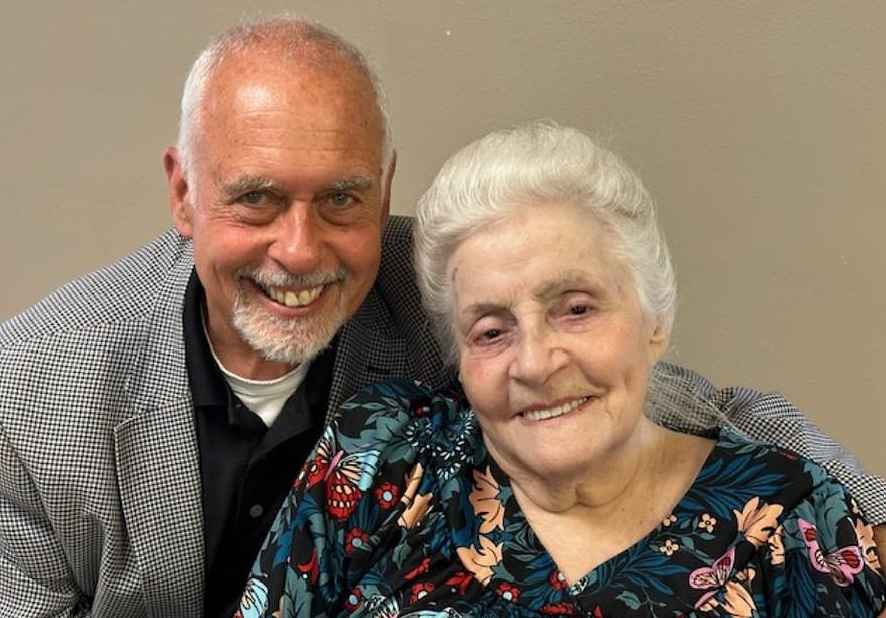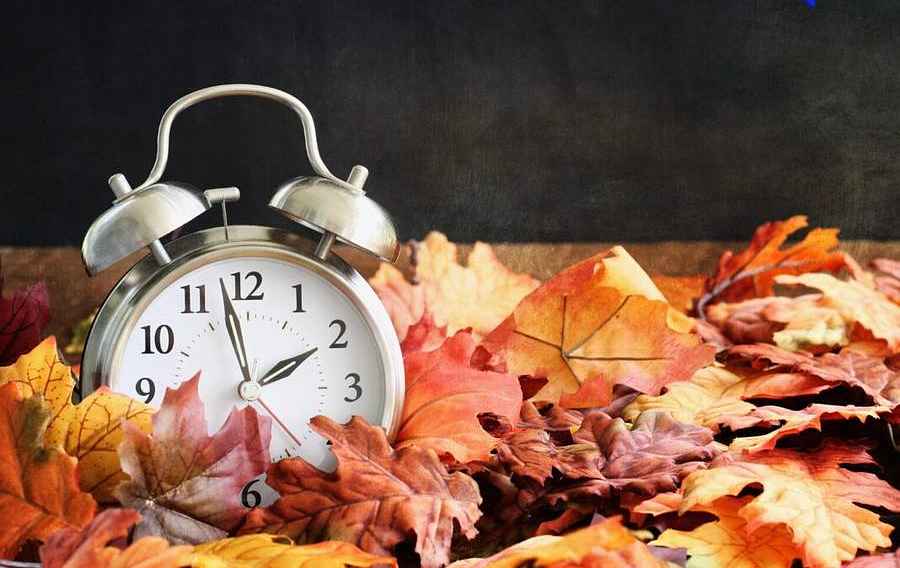






See listing of Recent and Most Popular articles on the Home Page
My World
Category: News & Current Events / Topics: History • Knowledge • Learning • Media • News • Politics • Popular Culture • Social Media • Social Movements
How is Your News Literacy?
by Stu Johnson
Posted: January 28, 2021
Learn how to be a literate news consumer during News Literacy Week…
It is incredible how ignorant and uninformed people can be, even in an age of information saturation. In some ways, nothing has changed. Many people know far more about celebrities and pop culture than current events and the workings of government (even one "of, by, and for the people")—and that was true long before the Internet.
In reality, the more choices we have, the more isolated and divisive we have become. And what seems like increased freedom has ultimately turned us from citizens to consumers—not just in a material sense, but in our understanding of the world.
The uproar surrounding the attack on the Capitol on January 6 focused on President Trump, who bears significant responsibility for stoking the fires of division since the 2016 election. But we were divided before. It just feels worse now.
Sadly since we are so reliant on media sources for our information and impressions of the world around us, the messengers also bear some responsibility for the situation we find ourselves in. Those messengers, empowered and manipulated by social media (notably Facebook and Twitter), have increasingly promoted a kind of vigilante journalism across the political spectrum; not necessarily because they set out to do so, but because it proved to be the most profitable business model.
My own concern for our responsibility as information consumers has led me to provide a number of articles on the topic, my own as well as other voices calling for citizen literacy. (See a list of articles related to elections and voting, and the issues of racism and equality).
An important movement is News Literacy Week, which was observed this past week.
The week is sponsored by the News Literacy Project, a national education nonprofit organization, which "provides programs and resources for educators and the public to teach, learn and share the abilities needed to be smart, active consumers of news and information and equal and engaged participants in a democracy." The website contains resources, including several quizzes, to help you assess your own news literacy—and then take steps to improve it.
Our local paper, the Daily Herald (suburban Chicago) had several features this week related to News Literacy Week. The headline of their editorial strikes the right note with me: we have a "duty to a loving skepticism" when it comes to news (both those who report it and those who consume it). Here are key excerpts and links.
Editorial: "News Literacy Week and our duty to a loving skepticism"
. . . We don't just confront somewhat-unavoidable bias these days. We also confront manipulation, false assumptions and lies on an alarming scale—aided by technology capable not only of disseminating misinformation with wide range and breathtaking speed, but capable also of sizing up our gullibilities.
Unfortunately, it is easy for any of us to be complicit in this culture of misinformation, easy without even trying for any of us to place a priority on reinforcing our beliefs rather than on learning and challenging them.
It's not just what we watch and what we read. It's also who we hang with and what arguments we allow into and keep out of our conversations. The tribal instinct extends to political thought as much as it does to any nationality or geography.
One side ridicules the other as ignorant or racist. One side dismisses the other as unpatriotic or foolish.
This is not the language of elevation or enlightenment. It is a language only of power and dominion.
It certainly does not build toward that more perfect union.
As we have said in this space in the past, we as citizens have obligations in a government of the people.
It's not good enough just to reside here and blindly cheer on our favorite politicians. And it's not good enough just to believe whatever we believe.
As citizens, we have an obligation to ourselves and to our country to be informed.
And part of being informed is to challenge, to offer a loving skepticism.
Editor Jim Slusher, "A week to reflect on your ability to evaluate news"
The Daily Herald is a reliable source of information about suburban communities and state and national issues and events, but you won't find a single person in the company who would tell you it should be your only source for this information. Indeed, rarely in our memory has it been more important than now to seek out multiple news sources and use discerning judgment in evaluating the reports you see and hear. . . .
When we think of the word literacy, we generally assume it refers to the ability to read. But there is more to reading than just understanding the words on a page, and when it comes to following current events -- whether through print, broadcast or social media -- true literacy involves serious critical thinking and analysis.
Columnist Bob Oswald, "The News Literacy Project keeps pressure on fact checking"
Can fact checkers take a break?
After all, gone is President Donald Trump, who, by The Washington Post's count, lied more than 30,000 times while in office. And his successor, President Joe Biden, in his inaugural address last week, spoke of a responsibility "to defend the truth and to defeat the lies."
No more lies? Mission accomplished? Only in a world of alternative facts.
We have to be careful not to let our guard down, according to Darragh Worland, vice president of creative services at the News Literacy Project.
"It would be a mistake to go too easy on Biden because (fact checkers) are fatigued from Trump fact checking," she said. "People need to know what their leaders are doing."
Here are a few hopes I have as we move forward:
- For all us as consumers of news:
- Use good sources—emphasis on multiple sources.
- Go for legitimate news sources. Avoid recommendations made by social media news feeds, websites, even friends.
- Have a healthy skepticism—don't take things at face value, but dig (and think) deeper.
- Expand your ideological perspective. Stretch yourself to consider other viewpoints. It will help add perspective that may help you actually have a conversation with the "opposition" rather than yelling across the street at them.
- Become a literate news consumer. Take advantage of sources like the News Literacy Project and others to discover where you are now and how to develop into a truly literate observer of the world you live in.
- For journalists and news media:
- Above all, be fair. We're all biased, but your job as a journalist is to help find the truth without letting your biases get in the way. I have seen and heard too much presented as news that should have been labeled commentary.
- Don't automatically demonize people you don't like and throw softball questions at those you favor. Avoid becoming an apologist for people and causes you personally believe in, unless you are expressing your own opinion.
- Dig deeper. Don't rely on a press release, or one scientific study. Unfortunately, most news rooms don't have the resources they once did, but that does not excuse journalists from being curious and inherently skeptical, with a depth and breath of knowledge.
- It's complex. Too often, there is a tendency to boil things down to binary positions, one side or the other. The more I read history, the more I have to say that most situations are far more complicated than we can grasp in a 30-second sound bite. That's a challenge, but it should temper the rush to judgment, to categorize.
How good is your news literacy? What can you do to improve it before the next News Literacy Week?
Search all articles by Stu Johnson
Stu Johnson is principal of Stuart Johnson & Associates, a communications consultancy in Wheaton, Illinois. He is publisher and editor of SeniorLifestyle, writes the InfoMatters blog on his own website and contributes articles for SeniorLifestyle. • Author bio (website*) • E-mail the author (moc.setaicossajs@uts*) • Author's website (personal or primary**)* For web-based email, you may need to copy and paste the address yourself.
** opens in a new tab or window. Close it to return here.
Posted: January 28, 2021 Accessed 452 times
![]() Go to the list of most recent My World Articles
Go to the list of most recent My World Articles
![]() Search My World (You can expand the search to the entire site)
Search My World (You can expand the search to the entire site)
![]() Go to the list of Most Recent and Most Popular Articles across the site (Home Page)
Go to the list of Most Recent and Most Popular Articles across the site (Home Page)
 Loading requested view...
Loading requested view...
